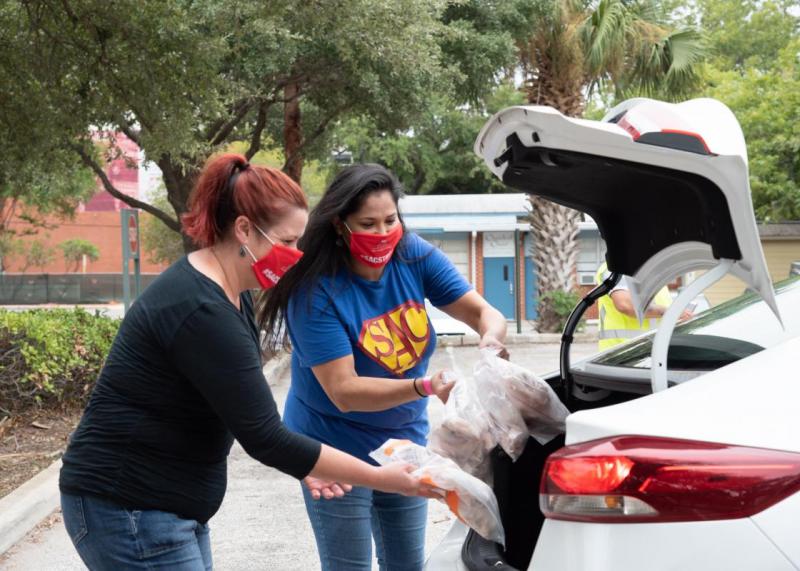
By Wyatt Otto, Content Manager With TikTok growing to become the most popular platform for traditional college students (age 18-22), more colleges are joining the platform to better connect to… Read More – So Your College is on TikTok, Now What?
Blog January 25, 2021

Welcome to the new year… 2020 is finally over! We know last year was quite the eventful year, but we have faith that 2021 will bring positive change and perseverance. During the month of January, we witnessed an incredible tragedy with the storming of our nation’s capital. With tragedy comes hope, as we witnessed the inauguration of our 46th president, Joe Biden. We look forward to seeing the changes that the Biden administration will bring to higher education.

According to a recent report from the CDC, COVID-19 cases increased by 56% in counties with large colleges that decided to host in-person classes this fall. In comparison, large colleges in other U.S. counties that decided to do strictly remote classes saw an 18% drop in cases.

While all colleges have faced troubles with enrollment due to the pandemic, the colleges that have been hit the hardest are those that primarily serve low-income students. Many colleges have extended various deadlines to accommodate current and prospective students, but this has had very little effect on overall enrollment numbers.

In the midst of the COVID-19 pandemic, data suggests that we will see a rise in demand for education in the health and medical fields. The average annual increase for all medical school applications is about 2.5%, and this year applications have increased by 18%.

After a violent attack that took place at the nation’s capitol on January 6th, college leaders all over the country released statements condemning the violence and its perpetrators. Read some of the statements delivered by various college and university leaders.

Many colleges across the nation have been working tirelessly to provide food and other necessities to students and families in need. While food insecurity amongst college students isn’t a new issue, colleges are finding the pandemic has aggravated this problem even more and colleges fear if it continues they might not be able to provide.

Next in line for the COVID-19 vaccines after health care workers are workers in higher education. While guidelines vary from state to state, the Centers for Disease Control and Prevention’s Advisory Committee on Immunization Practices (ACIP) has recommended workers in education be included in Phase 2 of the distribution process.

A recent report found that one-third of college students have reported battles with various mental health issues brought on by the pandemic. The study broke down the data based on race and ethnicity, gender, and income. When it came to gender, women had higher stress levels compared to men.

As the COVID-19 vaccines begin to roll out, colleges and universities are looking forward to progressing to some sense of normalcy. Colleges believe that not one but multiple strategies need to be implemented in order to keep the campuses safe.

Students that participate in non-credit workforce programs currently are paying about 42% of the overall cost of their programs out of pocket. Many community colleges and businesses have advocated for Pell Grants to cover workforce programs training programs and some members of Congress have supported this idea.

The U.S. Department of Education has offered $21.2 billion in coronavirus relief to higher education institutions, with undocumented students potentially being excluded. Then President-elect Joe Biden also released a summary of a $1.9 trillion relief package, which would include another $35 billion to assist colleges and universities.

By Wyatt Otto, Content Manager With TikTok growing to become the most popular platform for traditional college students (age 18-22), more colleges are joining the platform to better connect to… Read More – So Your College is on TikTok, Now What?

We’re all familiar with she/her and he/him pronouns, but there’s a third set of pronouns that we need to become more familiar with, and that’s singular they/them pronouns.

In an interview with Paula Di Dio, Ph.D. in Latin American literature and cultural studies and senior director of communications & research strategist at Interact, we break down how best to communicate with Latino and Hispanic students.
Read More – Writing and Marketing to Latino and Hispanic Students